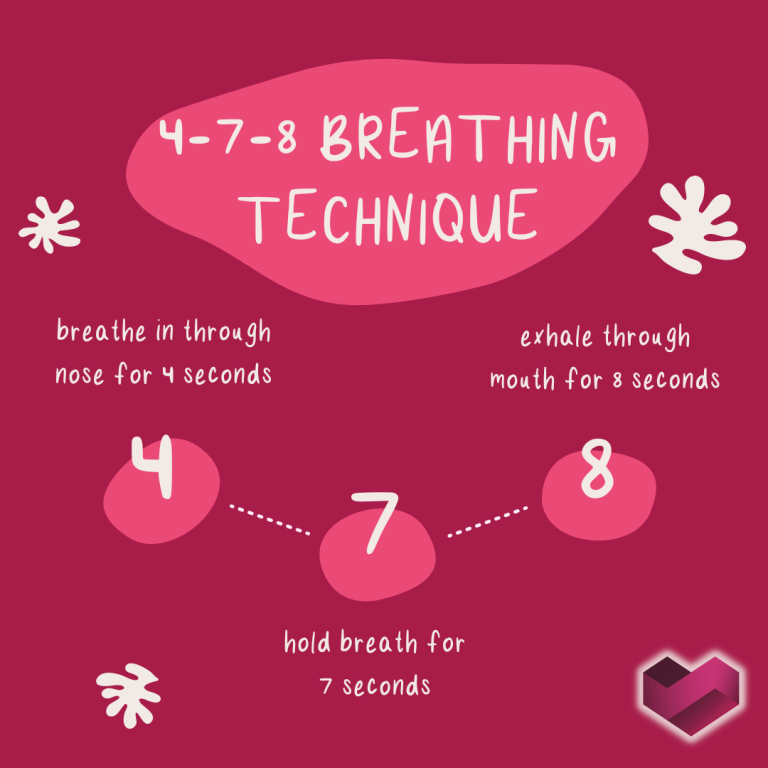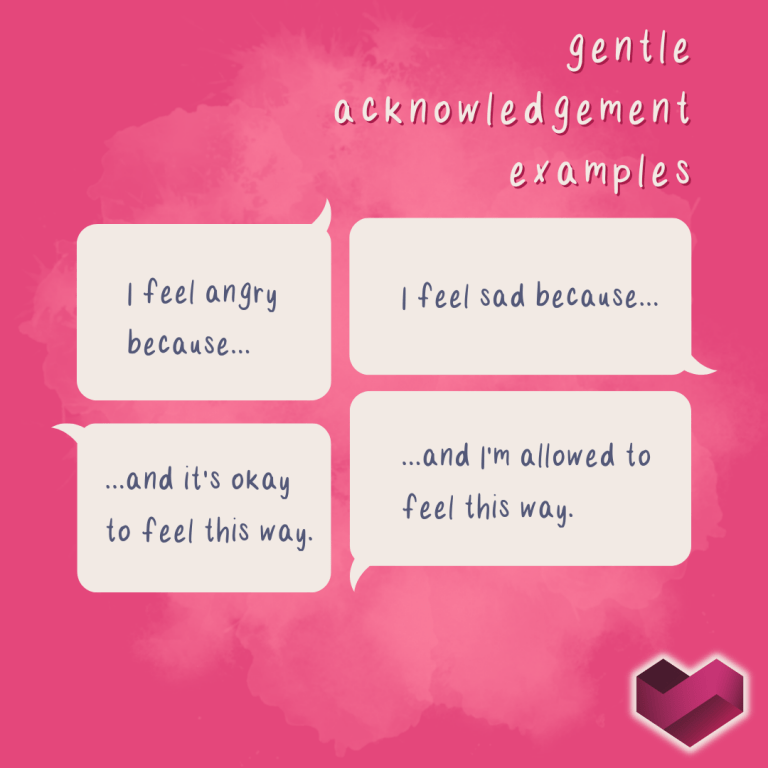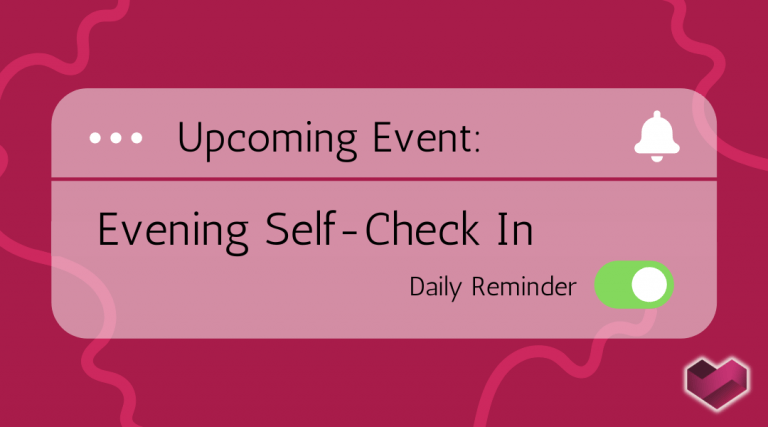6 Steps to Checking In, So We Don't Feel So Checked Out
Do you feel checked out? This article will explore six steps you can use to check in with your feelings and identify what you need from moment to moment, to help prevent you from feeling checked out.
- Stop, Breathe, and Check In
- Be Gentle with Yourself
- Identify What You Are Feeling
- Identify What Is Causing These Feelings
- Decide How You’d Like to Feel
- Take Care of Yourself and Check in Again Later
Are you aware of how you feel from moment to moment?
In the whirlwind that is daily life, it can be challenging to take a step back to check in with ourselves from time to time. This is especially true when we are feeling scared, anxious, or worried. We start feeling checked out.
It’s easy to get swept up in other people’s emotions and forget to take care of ourselves at the same time. In fact, research has shown that self-compassion is one of the best ways to cope with stress and anxiety.
Self-compassion involves being kinder and gentler towards yourself instead of being so hard on yourself when you make mistakes or think negatively about yourself.
Stop, Breathe, and Check In
When we feel scared, anxious, or worried, it can be easy to project these feelings onto other people. We might find ourselves snapping at loved ones or feeling overly sensitive to criticism. This is because we are not checking in with ourselves and taking care of our own emotions when we need to.
Instead, we are trying to constantly be strong for other people and not allow ourselves to be vulnerable. When we are constantly putting our emotions on hold, it can lead to feeling overwhelmed and stressed out.
So, it’s important to use self-compassion as a way to regularly check in with your emotions. When we feel emotions, there is usually a physical sensation that goes along with them.
To begin, stop what you are doing and take a few moments to breathe.

Close your eyes and focus on your breath for a few minutes. This will help shift your brain out of the busyness of the moment and into a calmer state.
Once you feel a little more relaxed, check in with yourself. Are you feeling higher or lower energy? Higher or lower pleasantness? This will help you get in touch with what is going on inside of you.
Be Gentle with Yourself
When we are in the middle of a panic attack or feeling sad, it can be hard to be gentle with yourself. It’s important to remember that you are doing the best you can right now.
Everyone makes mistakes, and we all have bad days. Being gentle with yourself means resisting the urge to criticize yourself for being human.
You don’t need to berate yourself for having a bad day or for being angry about something, or even for feeling checked out. Instead, when you notice yourself being too hard on yourself, try to soften your language. You can say, “I’m angry because….” or “I feel sad because….” This will help you take the critical voice inside your head down a notch.

It’s human to make mistakes, and it’s even more normal to have moments where you don’t like yourself very much. Being gentle with yourself means cutting yourself some slack and reminding yourself that you don’t need to be perfect in order to be a good person.
Identify What You Are Feeling
When we are feeling anxious or stressed, it can be difficult to identify exactly what we are feeling. This is because many of these emotions are a combination of feeling anxious and feeling worried.
For example, feeling overwhelmed can be a mix of feeling anxious, being worried about being able to finish what you need to do, and feeling ashamed about not being able to handle things better. Identifying what you are feeling can help you not only to calm down, but also to figure out what you need right now.
If you are feeling overwhelmed, you can try saying to yourself, “I am feeling overwhelmed right now. This is what I am feeling. This is why I am feeling this way.”
Taking the time to do this can help you feel less overwhelmed. This is because knowing what you are feeling can help you to make sense of your emotions.
It will also help you to recognize when certain feelings are coming up again. And that is important, because it may be that you need to take action to take care of yourself in this moment.
TIP: For a list of feeling words, check out our free printable Munny Mood Meter. Save this meter and use it when you notice you’re starting to check out.
Identify What Is Causing These Feelings
It can be helpful to not only identify what you are feeling, but also to identify what is causing these feelings. For example, if you’re feeling anxious about a meeting you have tomorrow, you might want to explore why you are feeling this way.
Are you worried about what people will think about your ideas? Are you nervous about speaking in a room full of people? Are you ashamed that you don’t know as much about the topic as you wish you did?
Sometimes our emotions are valid, and sometimes they are not. When we are feeling a certain way, it can be helpful to ask ourselves why we feel this way. This can help us to calm down and decide what we need to do next.
If you have a meeting coming up and you are anxious about it, you may want to re-read the agenda, send a friend an email with a few questions you have, or spend some time preparing your presentation slides. Being aware of what is causing your feelings can help you to decide what action to take in the moment.
Decide How You’d Like to Feel
Now that you have taken a moment to identify what you are feeling and what is causing these feelings, you may want to also decide how you’d like to feel instead. For example, if you are feeling shame about something and you want to feel less ashamed, you can try saying to yourself, “Next time I meet someone new, I would like to feel more confident. I would like to feel comfortable introducing myself and sharing my ideas.”
Sometimes we feel a certain way because we are telling ourselves that’s how we should. So, if you notice that you are feeling a certain way and want to change it, it can be helpful to change your internal dialogue.
This can be especially helpful if you are feeling anxious and want to calm down. When you are anxious, your mind tends to go to worst-case scenarios. For example, you may be driving to work and notice that you are thinking about what could go wrong on the road.
You can try to interrupt these thoughts by saying to yourself, “I am safe. There are other people on the road who are driving as safely as I am.” This will help you to calm down and feel less anxious.

If you are wondering, “what does it even mean to change my internal dialogue?” Don’t worry! Dominee over at Self-Love Rainbow has a fantastic printable workbook called Self Talk & Your Inner Voice: Exploring the foundations of self-love.
I have personally used this workbook to process through what voice is saying what to me and why, to help better understand what I need to tell myself in the moment.
Take Care of Yourself and Check In Again Later
When you have spent some time trying to calm yourself down, checking in with your emotions, and deciding how you’d like to feel, it can be important to take care of yourself. This means that you may need to stop whatever you are doing and take a break.
You may also want to make some changes so that you can feel better. For example, if you are feeling anxious about a presentation you must give, you may want to speak to a colleague about what you are nervous about or try to find some people in your field who have given a presentation similar to the one you will be giving.
Sometimes we can’t calm ourselves down or change the way we are feeling during the moment. That’s okay. It just means that we need to check in with ourselves again later. So, if you try all of the above and you still feel overwhelmed, sad, or anxious, try to just let those feelings be. They will pass eventually.
Instead, try to give yourself permission to be upset without trying to talk yourself out of it. You don’t need to feel guilty about feeling upset. You are human and are allowed to feel the way you feel.

Conclusion
Stress and anxiety can feel overwhelming, and it isn’t easy to remember check in with ourselves. It’s even more difficult if we are new to implementing self-check-ins into our lives.
The most important part is to remember to be kind to ourselves. If we are judging our ability to even focus on our breath, we will have trouble calming down. Remember: “I am worthy. I am allowed to feel my feelings. I am safe.”
P.S. It’s okay if you’re new to this stopping and checking-in stuff. I am fairly new myself—only two years ago was I introduced to feeling words and becoming more aware of how I felt. It takes time to develop new, healthy habits. When I’m feeling checked out, I grab my Muenster Mood Meter and see where I’m at.


